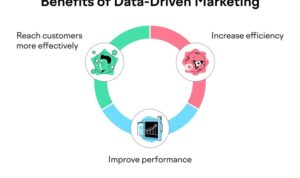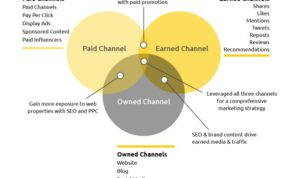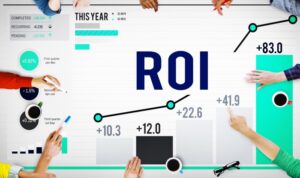Kicking off with Event Planning for Brands, this paragraph sets the stage for an exciting discussion on creating unforgettable brand experiences through strategic event planning. Get ready to dive into the world of brand promotion and engagement like never before!
Importance of Event Planning for Brands
Event planning plays a crucial role in brand promotion by providing a platform for brands to connect with their target audience in a meaningful and engaging way. It allows brands to showcase their products or services, communicate their brand message, and create memorable experiences that leave a lasting impression on attendees.
Successful Brand Events and Their Impact
- Apple’s product launches: Apple’s carefully orchestrated product launch events generate a buzz around their new products, creating excitement and anticipation among consumers. These events not only drive sales but also strengthen Apple’s brand image as innovative and cutting-edge.
- Coca-Cola’s experiential marketing campaigns: Coca-Cola has successfully used experiential marketing events, such as pop-up shops and interactive installations, to engage with consumers on a personal level. These events help to humanize the brand, foster emotional connections, and increase brand loyalty.
Enhancing Brand Visibility and Recognition
Strategic event planning can significantly enhance brand visibility and recognition by ensuring that the brand is consistently represented in a positive light across all touchpoints. By aligning event themes, messaging, and activities with the brand’s core values and identity, brands can create a cohesive brand experience that resonates with attendees and leaves a lasting impression. Additionally, partnering with influencers, celebrities, or industry experts can help amplify the brand’s reach and attract a larger audience to the event, further boosting brand visibility and recognition.
Steps in Event Planning for Brands

Planning a successful brand event involves several key steps that are essential for ensuring its effectiveness and impact on the target audience.
Setting Objectives and Goals for a Brand Event
When planning a brand event, it is crucial to establish clear objectives and goals that align with the overall marketing strategy. These objectives should be specific, measurable, achievable, relevant, and time-bound (SMART). By defining these goals, brands can focus their efforts and resources on creating an event that will help them achieve their desired outcomes.
- Identify the purpose of the event and what you hope to accomplish
- Define specific and measurable objectives that align with your brand’s overall goals
- Ensure that the goals are realistic and achievable within the given timeframe
- Create a timeline for achieving these objectives and track progress along the way
Importance of Budgeting and Timeline Management in Event Planning, Event Planning for Brands
Budgeting and timeline management are critical aspects of event planning for brands. Without proper budgeting, it can be challenging to allocate resources effectively and ensure that the event meets its goals within the allocated budget. Similarly, timeline management is essential for keeping the planning process on track and ensuring that all tasks are completed in a timely manner.
- Develop a detailed budget that includes all expenses related to the event
- Allocate resources based on the priorities and objectives of the event
- Regularly review and adjust the budget to accommodate any changes or unexpected expenses
- Create a timeline that Artikels key milestones and deadlines for each stage of the event planning process
- Assign responsibilities to team members and ensure that everyone is aware of their tasks and deadlines
Choosing the Right Event for a Brand

When it comes to selecting the perfect event for a brand, it’s crucial to consider the brand’s identity, target audience, and marketing goals. Each type of event serves a different purpose and reaches a different audience, so choosing wisely is key to a successful brand promotion strategy.
Comparing Different Types of Events
- Product Launches: Ideal for introducing a new product or service to the market, generating buzz, and attracting media attention.
- Brand Activations: Interactive events that engage consumers, create brand awareness, and foster brand loyalty.
- Conferences: Great for industry networking, thought leadership, and showcasing expertise in a particular field.
Each type of event offers unique benefits for brand promotion, so it’s essential to align the event type with the brand’s goals and target audience.
Factors to Consider in Scale and Format
- Brand Identity: The event should reflect the brand’s values, mission, and personality to maintain consistency in messaging.
- Target Audience: Understanding the demographics, preferences, and behaviors of the target audience helps in designing an event that resonates with them.
- Budget: Consider the financial resources available and allocate funds wisely to ensure a successful event within budget constraints.
- Location: Choose a venue that aligns with the brand image and is easily accessible to the target audience.
- Timing: Select a date and time that maximizes attendance and engagement, avoiding conflicts with other events or holidays.
Marketing Strategies for Brand Events
When it comes to promoting brand events effectively, innovative marketing strategies play a crucial role in creating buzz and generating excitement among the target audience. Utilizing social media and digital marketing can significantly enhance the reach and impact of brand events, leading to increased brand awareness and engagement.
Role of Social Media and Digital Marketing
Social media platforms such as Instagram, Facebook, Twitter, and LinkedIn provide brands with a powerful tool to connect with their audience and build anticipation for upcoming events. By creating engaging content, utilizing targeted ads, and leveraging influencers, brands can effectively promote their events and reach a wider audience.
Examples of Successful Branding Campaigns
- Red Bull Stratos: Red Bull’s sponsorship of Felix Baumgartner’s record-breaking skydive from the stratosphere not only created a buzz around the event but also solidified Red Bull’s image as a brand associated with extreme sports and adventure.
- Apple Keynotes: Apple’s product launch events, such as the annual iPhone keynote, are highly anticipated by consumers and tech enthusiasts alike. Through live streams, social media updates, and exclusive previews, Apple generates excitement and builds brand loyalty among its followers.
- Coca-Cola FIFA World Cup Campaign: Coca-Cola’s partnership with the FIFA World Cup led to the creation of engaging marketing campaigns that not only promoted the event but also reinforced Coca-Cola’s global presence and association with sports and entertainment.
Collaborations and Partnerships in Event Planning
Collaborating with influencers, sponsors, and other brands can significantly benefit brand events by expanding reach, enhancing credibility, and increasing overall impact. These partnerships bring unique perspectives, resources, and audiences that can elevate the event experience and generate buzz.
Benefits of Collaborating with Influencers, Sponsors, and Brands
- Increased Exposure: Partnering with influencers, sponsors, and other brands can help reach a wider audience and attract more attendees to the event.
- Enhanced Credibility: Associating with reputable influencers, sponsors, or brands can boost the credibility of the event and brand, leading to more trust from consumers.
- Access to Resources: Collaborations can provide access to valuable resources, such as expertise, networks, and funding, that can enhance the event’s quality and impact.
Amplifying Reach and Impact through Partnerships
Strategic partnerships can amplify the reach and impact of a brand event by tapping into the partner’s existing audience, leveraging their influence, and creating synergies that benefit all parties involved.
Tips for Building Strategic Partnerships for Successful Brand Events
- Identify Compatible Partners: Look for influencers, sponsors, or brands that align with your brand values, target audience, and event goals to ensure a mutually beneficial partnership.
- Offer Value: Clearly communicate the value proposition for potential partners, emphasizing how the collaboration can benefit their brand, audience, and overall objectives.
- Establish Clear Goals: Define specific goals, expectations, and roles for each partner to ensure alignment and maximize the impact of the collaboration.
- Communicate Effectively: Maintain open and transparent communication with partners throughout the planning process, addressing any concerns or issues promptly to foster a positive working relationship.
- Evaluate and Adjust: Continuously evaluate the partnership’s performance, gather feedback, and make adjustments as needed to optimize results and ensure a successful brand event.





